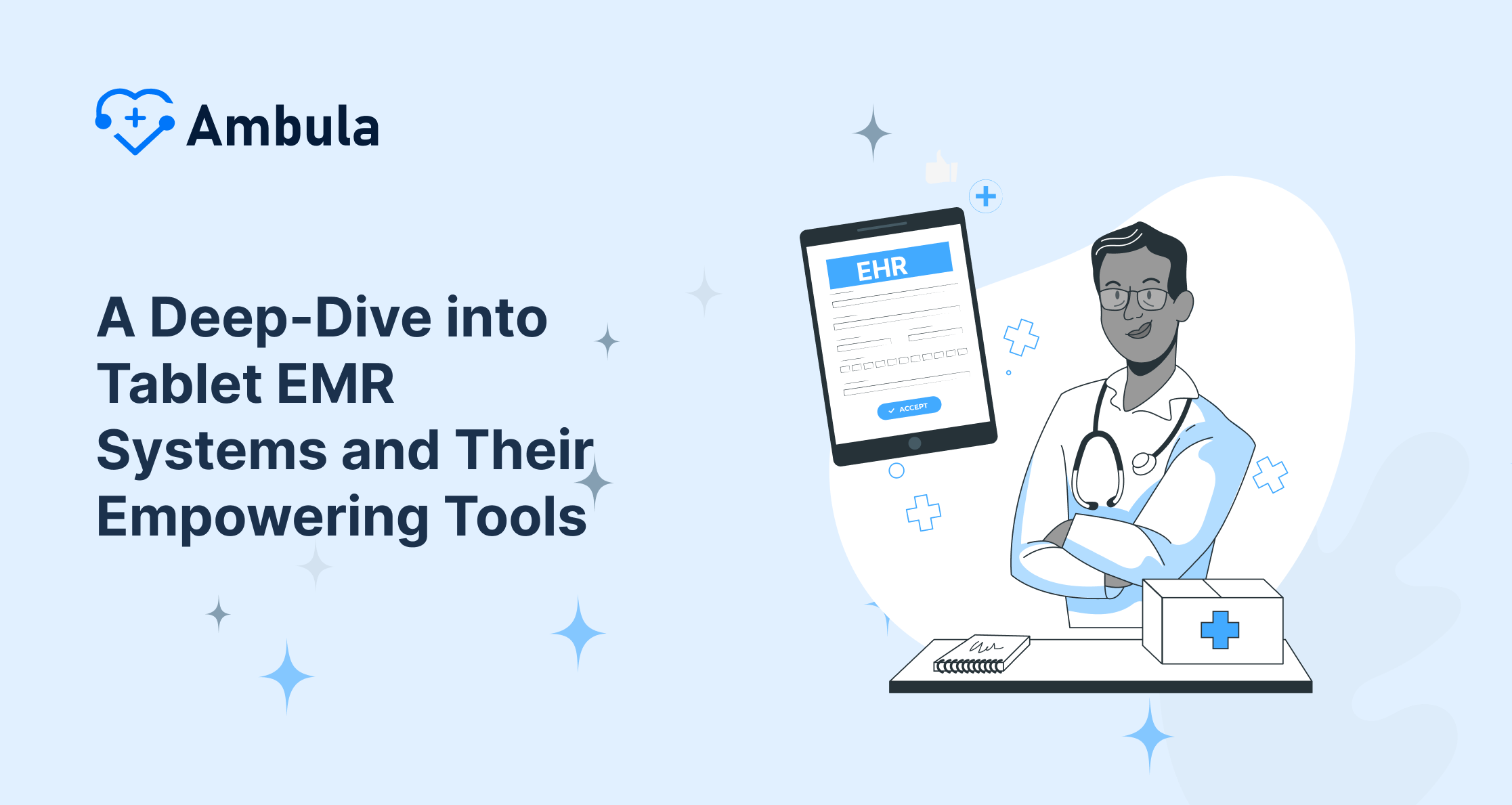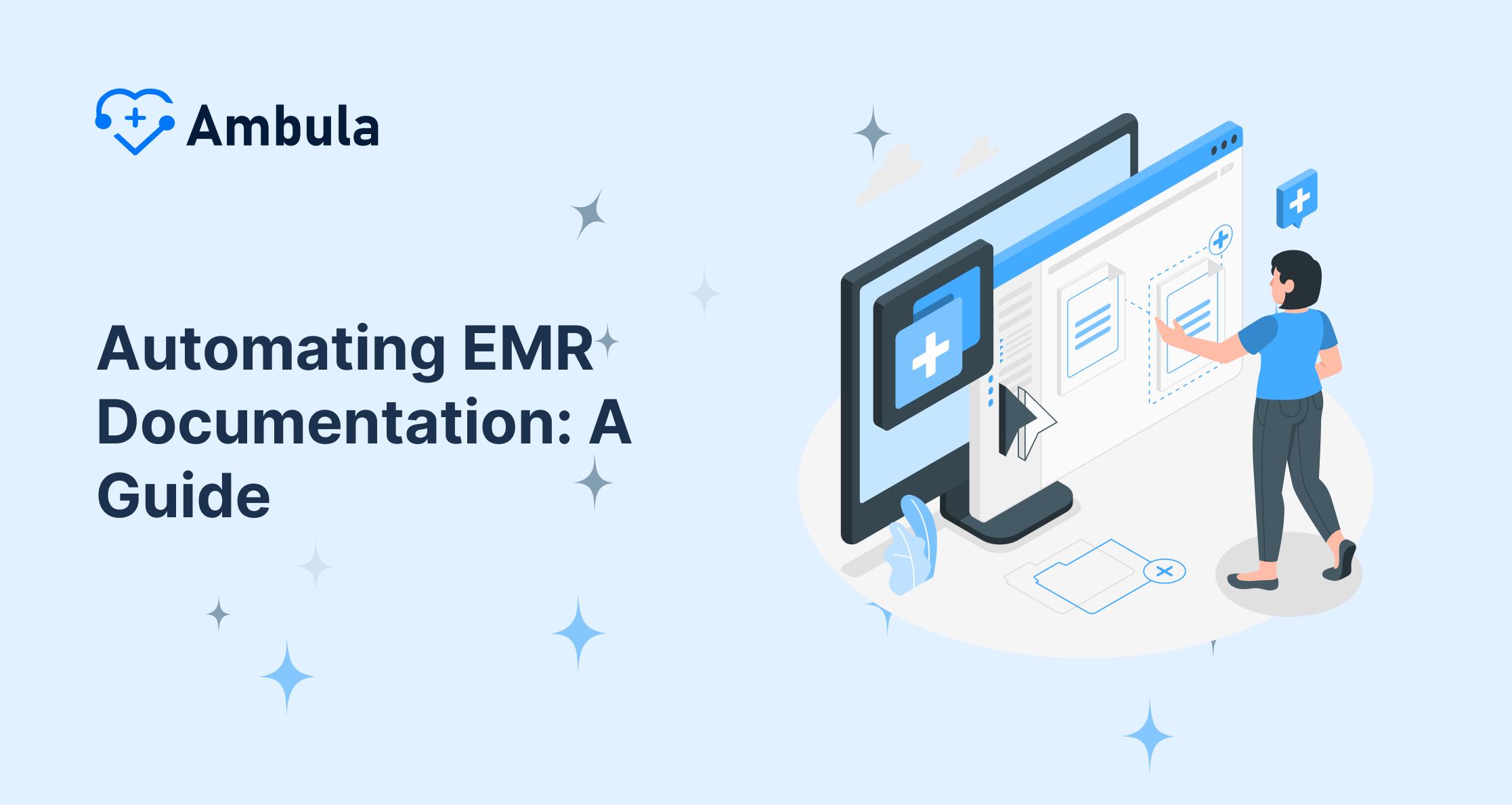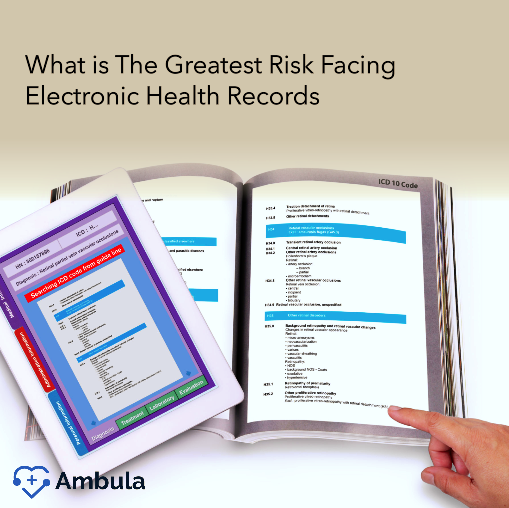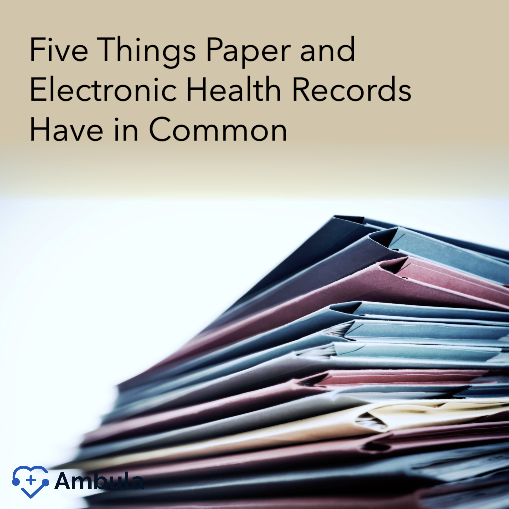Traditional paper-based medical records, with their inherent limitations of fragmentation, misplacement, and illegibility, have long been frustrating for healthcare providers and a barrier to effective patient care. The introduction of EMRs has addressed these challenges head-on, providing a centralized, organized, and readily accessible repository of patient health information. This centralized approach eliminates the need for healthcare providers to sift through mountains of paper charts, saving valuable time and enhancing efficiency.
Real-time access to patient records, a hallmark of EMRs, has revolutionized clinical decision-making. With EMRs, healthcare providers can swiftly review a patient’s medical history, including allergies, medications, and past diagnoses, at the point of care. This real-time accessibility empowers providers to make informed decisions promptly, particularly in time-sensitive emergencies. For instance, in an emergency department setting, EMRs can provide crucial information about a patient’s medications and allergies, enabling rapid treatment initiation and preventing potential adverse reactions.
Check out these articles after you’re done
Market Growth and Cost Savings in EHR
Research by Grand View Research proves the electronic health record global market is projected to grow at a CAGR of 4.1% between 2024 and 2030 and is supposed to be worth approximately USD 38.5 billion in value by the year 2030. One can notice a considerable rise in the share of web-based EHRs in the market, considering the kind of convenience and cost improvement that these programs bring. EHR has reduced costs for outpatient care by as much as 3%, saving USD 5.14 for every patient every month. There is also a dramatic reduction in the risk of error in recording information about patients’ treatment and financial information, therefore increasing the general accuracy and safety of the medical record.
Pandemic Influence and Ambulatory Growth
In fact, at this time of the pandemic, EHR vendors took the opening to widen their data access further for more granular COVID-19 dashboards that will help manage and respond to the crisis. The globally increasing number of ambulatory care centers is supposed to have growth in the ambulatory use segment, including the use in physician clinics, laboratories, and pharmacies, at the fastest rate. The North American market was prime in 2023, although solid foot holds in healthcare infrastructure and supportive governmental initiatives, out of which the U.S. is a lead player because it has its EHR-established companies.
Tech Collaborations and Future Impact
Apart from this, companies like Cerner Corporation are now collaborating with technology superpowers like Amazon to that effect, making a push to bring EHR solutions that will accompany wearables and take patient care even a notch higher with improved interoperability. The following are a few statistics related to the optimist support of EMRay for patient care: lowering costs, reducing errors, and improving access to data and its management.
Enhanced Accessibility to Patient Information
EMRs have revolutionized the healthcare industry by providing a centralized patient data repository, enabling healthcare providers to access a comprehensive medical history at their fingertips. This centralized approach eliminates the need to search through fragmented paper records, saving time and improving efficiency. Real-time access to patient records is crucial for making informed treatment decisions, especially in emergencies. EMRs allow healthcare providers to quickly review a patient’s allergies, medications, and past diagnoses, ensuring that they receive the most appropriate care.
However, this real-time access must be balanced with secure and authorized access to patient information. EMRs must be protected by robust security measures to prevent unauthorized access and safeguard patient privacy. Healthcare providers must be trained to handle sensitive patient data responsibly and to adhere to strict access protocols. By balancing accessibility and security, EMRs can empower healthcare providers with the information they need to deliver high-quality, patient-centered care.
Improved Efficiency and Accuracy in Record-Keeping
The healthcare industry is awash with data, and a vast patient information repository is crucial for providing effective care. Traditionally, this information was stored in paper charts, a cumbersome and error-prone system that hindered efficiency and accuracy. However, the advent of electronic medical records (EMRs) has ushered in a new era of record-keeping, one that is characterized by efficiency, accuracy, and streamlined processes.
EMRs eliminate the need for paper charts and manual data entry. Instead, patient information is electronically recorded and stored, allowing for quick and easy retrieval. This automation streamlines the documentation process, freeing up valuable time for healthcare providers to focus on patient care. Furthermore, EMRs incorporate automated processes and decision-support tools that further enhance efficiency. These tools can automatically generate reminders for preventive care, identify potential drug interactions, and alert providers to potential errors in medication orders, reducing the likelihood of human error and improving patient safety.
The accuracy of patient records has also been significantly improved with the adoption of EMRs. Paper charts are susceptible to errors and inconsistencies, as handwritten notes can be misinterpreted and information easily lost or misplaced. EMRs, on the other hand, provide a structured and standardized format for recording patient data, minimizing the risk of errors. Additionally, EMRs often incorporate data validation checks that ensure the accuracy of information entered into the system.
Enabling Patient Engagement and Self-Management
The healthcare industry is undergoing a paradigm shift, transitioning from a traditional provider-centric model to a patient-centered approach that emphasizes patient engagement and self-management. Electronic medical records (EMRs) have emerged as powerful tools in this transformation, enabling patients to take an active role in their care and fostering a sense of ownership over their health.
EMRs provide patients with secure access to their health records, empowering them to review their medical history, track their progress, and make informed decisions about their care. This transparency fosters trust and collaboration between patients and their healthcare providers, leading to better communication and shared decision-making. Additionally, EMRs often incorporate patient portals and secure online platforms that allow patients to schedule appointments, communicate with providers, and manage their medications, further enhancing their engagement in their care.
Patient engagement through EMRs extends beyond mere access to information; it also encompasses self-management tools that empower patients to take control of their health. EMRs can provide personalized health education materials, track medication adherence, and monitor chronic conditions, enabling patients to make informed decisions and actively manage their health. For instance, patients with diabetes can use EMRs to track their blood sugar levels, receive reminders for medication refills, and access educational resources on managing their condition.
Enhanced Decision-Making and Clinical Practice
Unlike fragmented paper charts, EMRs present a holistic picture of a patient’s health journey, encompassing past diagnoses, medications, allergies, and treatment plans. This consolidated view enables healthcare providers to identify patterns, trends, and potential risks, leading to more accurate diagnoses, personalized treatment plans, and improved patient outcomes.
EMRs facilitate data analysis and identification of trends in patient care, providing healthcare providers with valuable insights into disease progression, treatment effectiveness, and patient response to medications. These insights can guide clinical decision-making, allowing providers to tailor treatment plans to individual patient needs and preferences. For instance, EMRs can reveal patterns of medication side effects or interactions, enabling providers to adjust medication regimens to optimize patient safety and efficacy.
EMRs also support evidence-based clinical practice by providing access to a vast repository of medical literature and clinical guidelines. Healthcare providers can readily access relevant research findings and best practice recommendations, ensuring that their decisions are grounded in the latest scientific evidence. This integration of evidence-based practice into clinical decision-making has been shown to improve patient outcomes across a range of conditions.
Advantages of EMRs for patients
The many advantages of EMRs for patients all lead to improved patient satisfaction and positive outcomes. Here is how EMR improves patient care:
- Reducing errors in comparison with paperwork
- Offering faster and better care
- Tracking patient information and results in time
- Improving diagnosis, treatment, and preventing adverse events
- Identifying patients requiring preventive care and screenings
- Boosting privacy and security for patient health information
- Supporting clinical decisions that are based on data
- Receiving follow-up support like weblinks, reminder,s and self-care advice
- Providing patient portals to the patient’s medications prescriptions and records while following the required changes in lifestyle
Advantages of EMRs for providers
Practitioners benefit, too, from the advantages of EMRs for providers.
- EMRs reduce consumed space: there is no longer a need to manage, store, and retrieve paper records, which saves space.
- They have perfect workflows: with EMRs, you can optimize your workflows, manage visiting patients, and track them.
- Reducing operations costs: EMRs keep records in the same place. Thus reducing operational costs.
- Communicating with other facilities: as a clinic owner, you can contact labs, hospitals, pharmacies, national health systems, and the state.
- Scalability: EMRs help scale and customize patients’ records.
- Allowing outreach: facilities can collect and analyze patient information. Therefore, helping practitioners reach discrete cases improves general health.
- Alerts and reminders: the communication capabilities of EMRs let facilities send alerts and reminders.
- Less documentation and medical errors: this improves care, fills gaps, and avoids redundancy.
- Research support: Better care quality is directly related to digital documentation for research support.
- Conflicting treatment checking: EMRs have safeguards that avoid conflicting treatments.
- Staff communication: EMRs can track the messages between labs, clinicians, staff, and hospitals.
- Avoid duplicate tests: Repeating tests can become a flaw if they are ordered mistakenly by doctors without timely access to them. EMRs reduce the tendency for repetition.
The future of EMRs
The future of EMRs looks bright. Of course, their advantages are far more remarkable than their disadvantages. When implementing an EMR, keep in mind the training and initial costs. Be careful from the start when selecting your EMR. Although switching systems costs a lot in terms of training, time, and money, the future lies within EMR.
Experts expect to see a big growth in integration, accessibility, devices, and interoperability in the future. Better decisions guarantee better treatment and diagnosis, saving money and time for both patients and facilities. Finally, the landscape of the healthcare field will change forever. A more flexible workflow base will boost productivity and reduce mistakes. Don’t forget the importance of EMR experience and the unquestionable need for training.
Conclusion
The impact of EMRs extends beyond individual patient encounters, influencing the broader healthcare landscape. EMRs have facilitated communication and collaboration among healthcare professionals, enabling the seamless sharing of patient information across different care settings. This enhanced communication has improved care coordination, reduced the risk of duplicate tests, and ensured that patients receive comprehensive and consistent care.
As EMRs continue to evolve, their potential to transform healthcare is immense. Integrating artificial intelligence and machine learning into EMRs will provide healthcare providers with powerful tools for data analysis, risk prediction, and personalized treatment recommendations. This advanced technology will further enhance patient care, improving outcomes and a more patient-centered healthcare system.
Ambula healthcare team is waiting for any inquiry you have; call: (818) 308-4108! And check out How are duplicate medical records are detected in EMRs?






